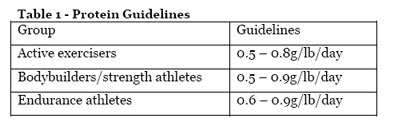 A dietary supplement is a preparation—a pill, powder, or liquid—that contains nutrients or other substances and is consumed as part of one’s daily food intake to supply adequate or large dosages of a nutrient or compound. Nutrients are components of food that provide energy, serve as building materials or regulate metabolic functions. Dietary supplements are used to achieve one or more goals: optimize health (overall health and lack of disease), improve physical performance (muscular capacity or muscle size), or accomplish cosmetic goals (weight loss or bodybuilding). Are dietary supplements beneficial?
A dietary supplement is a preparation—a pill, powder, or liquid—that contains nutrients or other substances and is consumed as part of one’s daily food intake to supply adequate or large dosages of a nutrient or compound. Nutrients are components of food that provide energy, serve as building materials or regulate metabolic functions. Dietary supplements are used to achieve one or more goals: optimize health (overall health and lack of disease), improve physical performance (muscular capacity or muscle size), or accomplish cosmetic goals (weight loss or bodybuilding). Are dietary supplements beneficial?Consider the following – 1) the typical American diet is high in fat and calories and limited in fruits, vegetables and whole grains; 2) current recommendations by the Department of Health and Human Services and the USDA are based on preventing deficiency disease rather than optimizing health and longevity and 3) it has been established that certain nutrients may prevent specific chronic diseases.[2] Unlike prescription drugs, there is minimal risk and little cost to ingesting certain nutrients above levels required to prevent deficiency and below levels that may result in adverse effects. Many well-known scientific and medical institutions including the American Medical Association and the Harvard School of Public Health recommend that everyone investigate the use of a multivitamin which provides insurance for a less than optimal diet. Aside from a daily multivitamin there are other nutrients with sound, scientific evidence that warrant consideration.
Calcium and Vitamin DDespite the importance of calcium and vitamin D in reducing the incidence of osteoporosis, intakes remain sub-optimal. Populations at risk for inadequate intakes are adolescents, postmenopausal women and the elderly. Sufficient amounts of calcium and vitamin D are required for bone health. Vitamin D is required for the absorption of calcium and increased levels of vitamin D have been shown to slow the rate of bone loss in the elderly. It has been estimated that one billion individuals worldwide have inadequate vitamin D stores and deficiencies occur across all ages and ethnicities.Furthermore, an association has been established between lower intakes of vitamin D and the risk of certain cancers (e.g., colorectal cancer). Groups that are at especially at risk for low vitamin D status are the elderly and those who lack exposure to sunlight. However, even populations with sufficient sunlight exposure are at risk for vitamin D insufficiency, which underscores the importance of this fat-soluble vitamin. Good sources of calcium and vitamin D are found in fortified dairy products, soybeans and sardines.
Fish Oils
Omega-3 fatty acids, eicosapentaenoic acid (EPA) and docosahexaenoic acid (DHA) found in fatty fish and fish oil supplements have been shown to have cardioprotective effects, reduce triglyceride levels, reduce the progression of atherosclerosis, possess anti-inflammatory properties and support cognitive function. Major public health recommendations include consuming fatty fish such as herring, salmon and mackerel at least twice a week. However, those who do not eat fish should consider taking a daily omega-3 supplement of 500 to1000 milligrams with an EPA to DHA ratio of 1.75 to 1.
Protein
People who engage in regular exercise or live an active lifestyle are likely to seek out the use of protein supplements to either enhance their training or health. Protein supplementation is appropriate for individuals with increased needs (e.g., athletes) who do not get adequate protein through their diet or have a personal preference for additional protein barring certain health conditions. Table 5 contains protein guidelines for various exercisers. To date, research indicates there is no benefit to consuming protein in amounts greater than those listed below.[20] Doing so replaces foods that provide other essential nutrients.

Summary of Dietary Supplement RecommendationsA daily multivitamin is recommended for everyone to shore up various nutrients including the B vitamins, iron and vitamin C. For most people, obtaining the recommended daily intake of calcium and vitamin D is best achieved by taking a separate supplement since the levels in most multivitamins are inadequate. Therefore, if you do not consume at least three servings of dairy each day or you do not get daily sunlight exposure, taking a separate calcium and vitamin D may be beneficial. In adults, an additional 500 to 1000 milligrams of calcium per day will meet daily requirements and taking up to 2,000 IU of vitamin D is considered safe. If you do not consume fatty fish twice a week, a fish oil supplement containing 500 to 1000 milligrams of EPA and DHA may be beneficial.

No comments:
Post a Comment